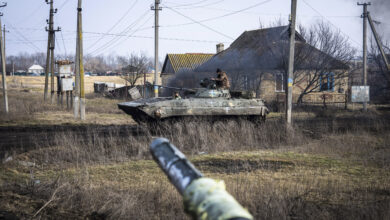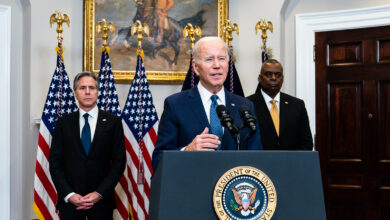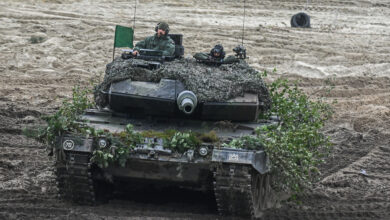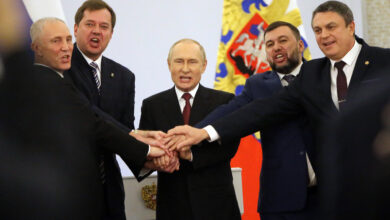
President Vladimir Putin signed a decree imposing a raft of punitive economic sanctions against Turkey on Saturday, underlining the depth of the Kremlin's anger towards Ankara four days after Turkey shot down a Russian warplane.
The decree, which entered into force immediately, said charter flights from Russia to Turkey would be banned, that tour firms would be told not to sell any holidays there, and that unspecified Turkish imports would be outlawed, and Turkish firms and nationals have their economic activities halted or curbed.
"The circumstances are unprecedented. The gauntlet thrown down to Russia is unprecedented. So naturally the reaction is in line with this threat," Dmitry Peskov, Putin's spokesman, said hours before the decree was published.
A senior Turkish official told Reuters the sanctions would only worsen the standoff between Moscow and Ankara.
But aides to Putin say he is incandescent that Turkish President Tayyip Erdogan has yet to apologize for the November 24 incident near the Syrian-Turkish border in which one Russian pilot was killed along with a Russian marine who tried to rescue the crew of the downed SU-24 jet.
Senior Russian officials have called the episode, one of the most serious publicly acknowledged clashes between a NATO member country and Russia for half a century, a pre-planned provocation.
Erdogan has been equally robust. He has said Turkey will not apologize for downing the jet, saying Ankara was fully within its rights to defend its air space. On Saturday, he appeared to soften his rhetoric a little, saying the episode had saddened him.
Putin's spokesman suggested the Russian leader was ready for a long standoff however, saying he was "fully mobilized" to tackle what he regarded as an unprecedented threat from Turkey.
National security
The decree, posted on the Kremlin's website, spoke of the need to protect Russia's national security and Russian citizens "from criminal and other illegal activities".
In it, Putin ordered the government to prepare a list of goods, firms and jobs that would be affected. Some of the measures announced have already been informally introduced.
The government is expected to publish the list of banned imports on Monday, Interfax news agency reported, citing a government source. The list is likely to include food and some other products, a second government source said.
Turkey mainly sells food, agricultural products and textiles to Moscow and is also one of the most popular holiday destinations for Russians. Peskov, Putin's spokesman, said he thought up to 200,000 Turkish citizens could be on Russian soil.
Putin signed the decree days before a climate change summit in Paris. Erdogan said earlier on Saturday it could be a chance to repair relations with Moscow.
"Confrontation will not bring anyone happiness. As much as Russia is important for Turkey, Turkey is important for Russia," Erdogan said in a televised speech in the western city of Baliksehir.
Peskov said Putin was aware of a Turkish request for him to meet Erdogan on the sidelines of the Paris conference but gave no indication of whether such a meeting would take place.
He called the behavior of the Turkish air force "absolute madness" and said Ankara's subsequent handling of the crisis had reminded him of the "theater of the absurd."
"Nobody has the right to traitorously shoot down a Russian plane from behind," Peskov told Russia's "News on Saturday" TV program, calling Turkish evidence purporting to show the Russian jet had violated Turkish air space "cartoons".
Turkey's foreign ministry advised people on Saturday to postpone all non-urgent travel to Russia.
Peskov, according to the TASS news agency, also spoke on Saturday of how Erdogan's son had a "certain interest" in the oil industry. Putin has said oil from Syrian territory controlled by Islamic State militants is finding its way to Turkey.
Erdogan has spoken of slander and asked anyone making such accusations to back up their words with evidence.




